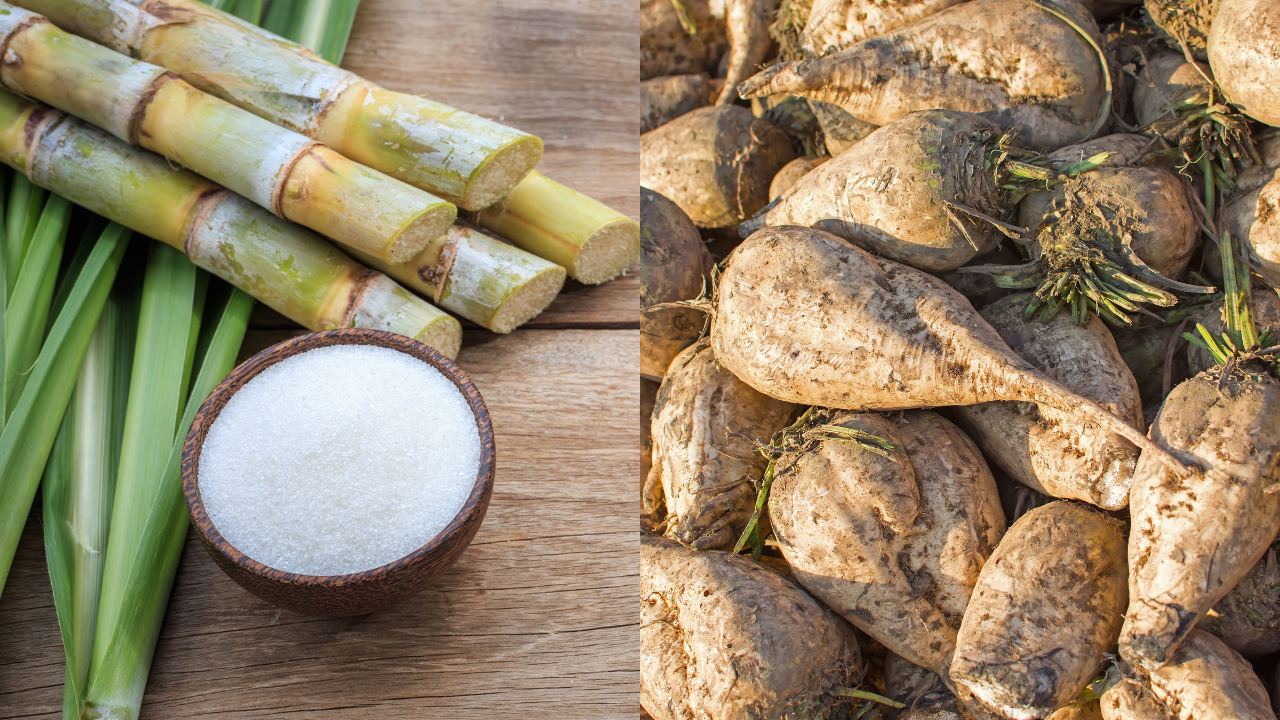The discussion of beet sugar vs cane sugar often includes comparisons of their glycemic index.
The discussion of beet sugar vs cane sugar often includes comparisons of their glycemic index.
Blog Article
Discover the Uses and Benefits of Beet Sugar Vs Cane Sugar in Your Daily Diet Plan
Exploring the unique qualities of beet and cane sugar discloses greater than simply their sweetening abilities; it highlights their special influence on health and cooking arts. Beet sugar, known for its refined taste, is commonly favored in fragile desserts, whereas cane sugar, with its hint of molasses, adds richness to durable recipes. Each type holds its very own nutritional account and glycemic implications, inviting a deeper understanding of their roles in a balanced diet and sustainable intake techniques.
Beginning and Production Processes of Beet and Cane Sugar

The distinctive climates and dirt kinds needed for growing sugar beets and sugarcane add to differences in their growing practices and geographical distribution, affecting the economics and sustainability of their production. beet sugar vs cane sugar.
Nutritional Comparison In Between Beet Sugar and Cane Sugar
Regardless of originating from different plants, beet sugar and cane sugar are nutritionally really similar, both primarily including sucrose. Each gives regarding 4 calories per gram, translating to roughly 16 calories per teaspoon. Structurally, both sugars are made up of around 99.95% sucrose, with minimal quantities of various other compounds like wetness and trace element, which do not significantly modify their dietary accounts.

Inevitably, when picking between beet sugar and cane sugar based on nutritional material alone, both offer similar advantages and downsides as they are basically types of the exact same molecule-- sucrose, giving quick energy without various other nutrients.
Effect On Health And Wellness: Glycemic Index and Caloric Material
Exploring even more right into the results of beet sugar and cane sugar on wellness, it is crucial to consider their glycemic index and calorie web content. The glycemic index (GI) of both beet and cane sugar is around 65, classifying them as high-GI foods, which can create quick spikes in blood glucose degrees.
Each kind of sugar includes around 4 calories per gram, making their caloric web content equivalent. For those checking calorie intake, particularly when managing weight or metabolic wellness conditions, comprehending this equivalence is essential (beet sugar vs cane sugar). Too much usage of any type of high-calorie, high-GI food can add to health concerns such as excessive weight, heart condition, and insulin resistance.
Environmental and Economic Factors To Consider of Sugar Production
Beyond health and wellness impacts, the manufacturing of beet and cane sugar likewise increases substantial ecological and financial issues. Sugar beet cultivation tends to need cooler climates and has a reduced geographical impact contrasted to sugar cane, which grows in exotic regions.
Additionally, using chemicals and fertilizers in both beet and cane sugar farming can cause dirt destruction and pollution, more affecting biodiversity and regional water bodies (beet sugar vs cane sugar). The selection between cultivating anonymous sugar beet or cane commonly rests on neighborhood environmental problems and financial aspects, making the sustainability of sugar production a complicated problem
Culinary Applications and Taste Distinctions
While the environmental and financial facets of sugar production are certainly significant, the selection between beet and cane sugar additionally influences culinary applications and flavor accounts. Beet sugar, stemmed from the sugar beet plant, is understood for its extremely neutral taste. This makes it a versatile component in cooking, where it does not modify the flavor of other elements. It liquifies promptly and is ideal for use in cakes, cookies, and pastries.
Walking cane sugar, extracted from sugarcane, typically retains molasses traces, which impart a distinct richness and depth. This slight molasses flavor boosts the complexity of baked products, sauces, and marinades. It is especially favored in products where a sugar touch is wanted, such as in brownies or gingerbread. In addition, the slight variation in wetness web content between beet and cane sugar can influence the texture and uniformity of recipes, making cane sugar a preferred choice for details dishes that gain from its one-of-a-kind properties.

Final Thought
To conclude, both beet and cane sugar have distinct origins and manufacturing processes, supplying comparable dietary accounts with slight distinctions in salt material and taste. While their influence on health and wellness, specifically relating to glycemic you could check here index and calories, is Get the facts similar, the choice between them frequently steams down to environmental, financial variables, and specific culinary requirements. Comprehending these facets can guide customers in making educated choices that straighten with their wellness objectives and taste choices.
Report this page